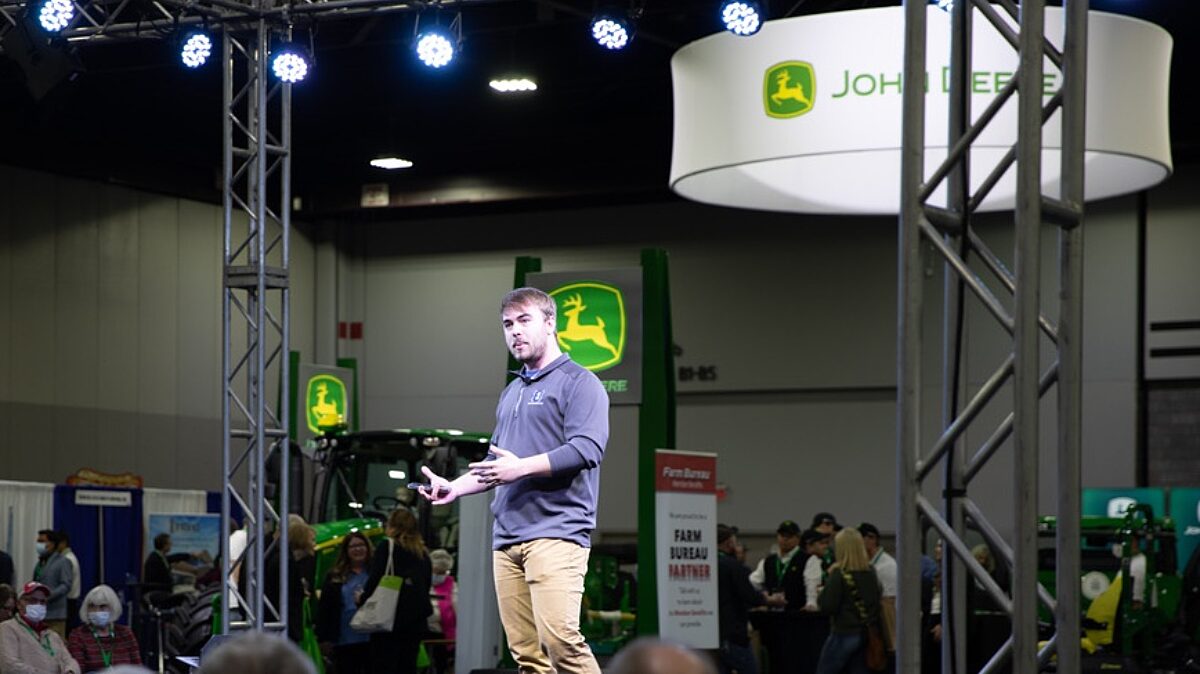Ag Businesses Driving the Future
TOPICS
Ag Innovation ChallengeZippy Duvall
President

Zippy Duvall
President
When farmers and ranchers from across the country met to kick off the year at the 2022 American Farm Bureau Convention, we focused on Growing Tomorrow, Together through the people, purpose and possibilities of our organization and agricultural community. We talked about rising up to meet the challenges of tomorrow and how doing so would require continued innovation. And at Farm Bureau, we’re investing in that vision.
Once again, we brought the most promising startups in agriculture to our convention to compete for up to $50,000 in prize money to grow their businesses. Since we launched the Ag Innovation Challenge in 2015, we’ve awarded over $1 million in startup funds to companies working to bring innovations to our farms and ranches, thanks to our partnership with Farm Credit and the generous support of our sponsors.
This year, the winning business was Grain Weevil Corporation from Nebraska. This company focuses on the critical need for grain bin safety. Grain Weevil robots level the surface of the grain, break crusts, and inspect the quality of the grain stored in the bin. This innovation will help save lives by keeping farmers out of the bin while helping control costs and reducing grain loss risk. We’re excited to see how the Challenge prize money boosts this business. But they aren’t the only great startup that left our convention with funding to help them grow.
Every year I am impressed by the ingenuity and creativity that entrepreneurs bring to our competition, and this year was no different.
The runner-up, Birds Eye Robotics, took home $20,000 in startup funds to help develop their robot, designed to improve animal welfare in poultry barns. Their innovative approach to flock management stimulates bird movement and cleans barns, decreasing the labor required for farmers. With all the difficulties farmers and ranchers have had finding workers, innovations like the one from Birds Eye can help reduce costs and secure a safe and affordable meat supply for all consumers.
Also making the top four was StemPunk, a company that has developed hardware to reduce damage to apples during harvest and transportation. Long stems can puncture other apples in the bin when apples are harvested. If this happens, punctured fruit can’t be sold as whole or sliced apples but must be converted to juice instead. Apples sold for juice are sold at lower prices, so if too many apples are punctured, it can be very costly for farmers. Punctured apples are also more likely to spoil, affecting other apples in the bin. StemPunk’s product, the first like it in the world, helps protect the fruits of farmers’ labor.
Marble Technologies, another finalist in the Challenge, is also focused on developing solutions for challenges in the labor market. They’ve created new approaches to automate steps in meat processing facilities that are labor intensive, require significant training, and lead to worker injuries from repetitive motions. Automating steps in this process can help create a more stable and secure food supply that is less vulnerable to some of the supply chain challenges we’ve seen during the pandemic.
Every year I am impressed by the ingenuity and creativity that entrepreneurs bring to our competition, and this year was no different. As we focus on ensuring a future of safe, nutritious and sustainable food, fuel and fiber, the innovations from businesses like the ones highlighted here will play a vital role in that future.
Zippy Duvall
President
Vincent “Zippy” Duvall, a poultry, cattle and hay producer from Greene County, Georgia, is the 12th president of the American Farm Bureau Federation.
Top Issues
VIEW ALL